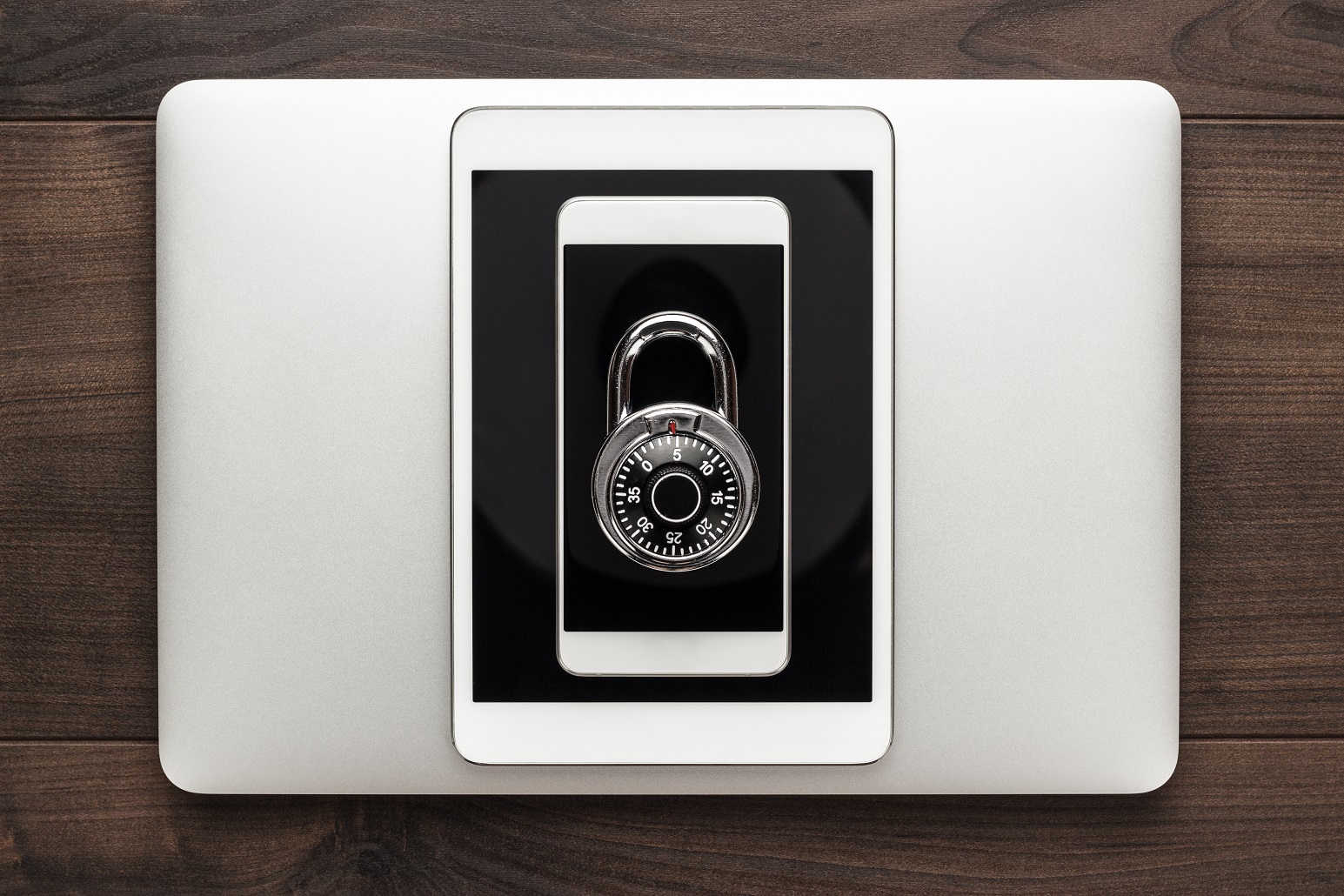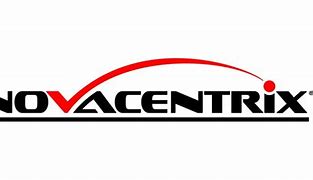Get certified to ISO 27001 with the help of our auditing experts who have the knowledge, experience, and level of care that will help you get the most out of your certification experience.

ISO 27001 is the global standard for information security systems. The certification offers a comprehensive framework for implementing a stringent system to protect organizational information intrusions and manipulation. The standard requires policies and procedures for correctly implementing your information security system. The all-inclusive protocol set out by ISO 27001 identifies areas for risk control to help organizations maintain a robust data security system.
An aim of ISO 27001 is to generate awareness among organizations regarding the importance of safeguarding information such as data on employee performance, customer records, intellectual property, and information on accounts/finance. The standard encourages companies to take precautionary measures to protect sensitive data. There is a growing concern for protecting organizational documents from breaches, infringements, and cyber attacks. The information security management standard not only offers guidelines but also promotes the proactiveness of management and the employees by giving the right amount of priority to data protection. The standard was originally established in the year 2005 and went through a thorough revision in 2022. The current version has focused more on the ongoing problems and risk factors associated with organizational data management.
The standard has established a benchmark for data security. Getting ISO 27001 certification helps demonstrate to clients that their information is secure and ensures responsible conduct on matters of managing and shielding data and records from vulnerabilities. Besides, the certification offers an array of advantages, which include the following:

ISO 27001 offers a set of well-known and approved standards for protecting information. It encourages management to take effective measures to maintain the confidentiality of all kinds of information including financial statements, records on employee performance and customers, and intellectual property. All companies have sensitive data, which in the wrong hands can devastate the public image the organization holds, can lead to loss of business and loss or manipulation of important information. Implementation of the international information security system designed by ISO 27001 is therefore one of the most crucial aspects of business sustainability and is essential and relevant to almost all organizations.

A company needs to keep an eye on the risk factors with high threat potentiality. The framework of ISO 27001 gives special attention to risk management by providing a well-built structure to minimize risk exposure. Management is encouraged to devise better strategies to identify and manage upcoming threats related to an organization’s intellectual property.

ISO 27001 certification ensures that all data related to customer transactions are guarded with maximum safety. That is one of the responsibilities of any organization. It assures clients that they are valuable assets, which eventually increases their loyalty toward your brand. Therefore, the standard helps ensure customer retention as well.

Every company has some kind of mechanism for documenting the performance and behavior of its workforce. If that content is not managed, monitored, and protected, both the company and the employees can face legal and professional challenges and fines. An information security management system offers a holistic program for the safe-keeping of company data, which includes sensitive employee information.

By managing data safety, a company gets the opportunity to make the workers and other internal stakeholders feel valued and safe. The standard, therefore, promotes a security culture, which also increases employees' morale.

The standard encourages companies to adhere to the legal and regulatory rules and regulations regarding data security. If the safety of intellectual resources is vulnerable, and that vulnerability is targeted, a company might have to face government intervention and substantial penalties. By getting ISO 27001 certification, a company has not only taken sensible and practical efforts to avoid data breaches, and has received recognition and objective confirmation of such, but also protects itself from legal issues.

To implement the framework designed by ISO 27001, a company does not need to be of a particular size, nor is there mandatory requirement to belong to a certain industry, information security is relevant to all organizations. However, there are a few conditions, which should be met to successfully enforce the system for productive results. The certified framework can work efficiently under -
There are specifically 14 sections of security measures, which need to be followed by a three-step audit process to implement the information security protocol mandated by ISO 27001. They are as follows -
Commit - A trusted certification body is chosen, engaged, and an audit date is set.
Pre-assessment - If clients wish, an assessment before the stage 1 and 2 audits is performed.
Stage 1 Audit - The management system and documentation are reviewed to ensure everything is in place for the stage 2 audit, including determining whether internal audit and the management review have been performed. An audit report is prepared and issued by the auditor for review. If everything looks good, the auditor confirms the stage 2 audit.
Stage 2 Audit - After addressing any concerns or opportunities for improvement from the stage 1 audit, the stage 2 audit is conducted by the auditor. The auditor checks that the management system is implemented and is compliant with ISO 27001. If there are any non-conformities, these are shared by the auditor. Once non-conformities are addressed and the auditor can confirm that the standard is being met, the auditor recommends the company for certification.
Issuing the certification - With the successful completion of the two stages of audits, the certification body issues the certification.
Surveillance Audits - Every certification lasts for 3 years. The certification body organizes annual audit programs to ensure ongoing compliance.
Blue Wolf Certifications is an ISO certification body that offers easy and fast accreditation at a competitive price. Our dedicated auditors make sure your system is working strictly as per the guidelines and norms of the standards.
Our certification package includes:
Stage 1 and Stage 2 Audits : External assessments to ensure the system’s efficiency and compliance with the rules and regulations.
Issuing the Certification : After receiving a recommendation of compliance from your Blue Wolf auditor, you will receive a certificate which is essentially evidence of the effectiveness of your management system from a third-party accredited certification body. Certification is evidence that you are compliant with international information security standards.
Surveillance Audit : Regular annual audits after certification will be performed to ensure the management system continues to be implemented, current, improved where applicable, compliant with ISO 27001 and effective.

See what our clients have to say about Blue Wolf
“Blue Wolf was a fantastic auditor. I would absolutely recommend them for any ISO certification. Very, very easy to work with and communicated very well.”
“Our auditor was fantastic. Very, helpful, very informative, very understanding, and took the time to answer questions, and was very, very easy to work with. Very nice. I know sometimes, some of the auditors can be a little cold and short but our auditor was very fantastic and she just helped out a lot.”
“Blue Wolf’s service was fantastic. They really helped out filling in the little gaps that we didn’t know we had and just made the audit process very, very easy.”
“Blue Wolf streamlined the entire process. They were very easy to communicate with and work with, very cordial, and just an all-around good experience.”
Quality Manager, Unity Tactical
“We chose Blue Wolf as a recommendation from Compliancehelp and we found the process to be as smooth with Blue Wolf as it has been with our consultant.”
“We worked with Seth from Blue Wolf as our auditor, and I’ve maintained dialogue with him for future audits. The support that we obtained from Seth because it was a newer accreditation was absolutely fantastic.”
“The service provided by Blue Wolf has been second to none. The open communications, the information that’s given to us, the whole process is explained from agenda being set throughout the audit, to the close of the audit, and the issuant of the certification.”
“I’d simply say go for it because they worked hand in hand with our consultant at the time. Going forward, I’ll be using them for this year as well.”
“Absolutely recommend Blue Wolf. The service that they provided was excellent. Going forward, because we’re a global business, as we go to search for accreditations across other areas of the globe, we’ll be utilizing Blue Wolf for the certification requirements.”
Quality Manager, Lowe Rental
“I found Blue Wolf to be the Cheapest and most experienced in my eyes ‘cause all of the price ranges were higher than Blue Wolf, so I stuck with Blue Wolf. Their quality was very high as well.”
Q: What would you say to those who are considering Blue Wolf for their ISO certification audit?
A: “They’re gonna get the most bang for their buck out of it. They’re gonna charge the cheapest out of the other companies and give you a high standard of quality work.”
CEO, Alvarez Wind Energy Services LLC.
“Would give them a 10 out of 10 and would highly recommend them to anybody looking to get ISO certification in the future.
The audit was very very smooth.
The day one audit was helpful, because although there weren’t any findings made he did make some recommendations to our QMS and our on-time delivery matrix which we incorporated on that same day, once again with Lee’s help We updated our QMS same day, got it to the auditor and he was very happy to see the changes we had made, even though they weren’t going to be any findings they were just recommendations, I think it did smooth the process through.
Seth was fantastic, very easy to work with, once we got through the time zone issues, very professional, knew what he was doing, knew where to look, and I assume he knows where the holes typically are. He also made a lot of accommodations to where we are in the world and helping us getting that certification.”
President, Electrical Contact International
“We were very happy with the service, and I would definitely recommend them for anybody who is looking to gain ISO accreditation.
The auditor was very knowledgeable, very understanding, very helpful.
It wasn’t just a scrutiny of your documentation and processes, it was actually a helpful process, constructive in the feedback that was given.
The auditor was very professional throughout the whole process. Very punctual, always on time, ready to go.
Was again open and honest about the whole process, so myself and business partner knew exactly what to expect for each day for each part of the process.
Yes, I would recommend Blue Wolf. They were very professional throughout the whole process. The auditors were very knowledgeable and helpful and made the whole process of the ISO external audit very easy and comfortable, and we would definitely recommend for anyone looking to gain ISO accreditation.”
Founder, Elite Wind.
It’s a very great experience. She (Tanya) helped me a lot and she explained a lot. If there is something that we might need to improve on, she will explain in a very detailed way. It’s a very smooth and very clear process. Definitely recommended.
CEO, HQS Automotive.
Our experience has been that this process in working with the auditors has shown us more ways to improve internally than what we expected
Founder, Art Advertising
One of the best business decisions I think we’ve made in the entire time we’ve been here in the company.
Founder, Art Advertising
When we first started the process of looking at the standard, we were afraid we would have to force our company into a new way of doing almost everything in doing our business. And we were very pleased to find out that the standard was meant to fit how we already were doing things. And Blue Wolf and Seth really helped us in the audit to not feel so intimidated by it, but to understand it, yes that the way we are doing it does fit the standard, and instead of just criticizing where we were coming short, he gave us advice and suggestions on how the standard is actually meant to be used, to improve how we are doing things, not to force us into a certain way of somebody else doing it.
Our experience has been that this process in working with the auditors has shown us more ways to improve internally than what we expected, and we would recommend going through this for anybody that’s considering it.
Founder, Art Advertising
After a lot of research and careful review of our options we chose to work with Blue Wolf, and we know now that we made the right decision. It’s been a great process, and I would recommend to anyone that is considering ISO 9001 to at least have a conversation with them. I don’t think you would regret it at all.
At the very beginning of this process, I think we can safely say we were very nervous about it and apprehensive about doing it. After our auditor Seth Shea arrived, we realized again what a great decision we made. He’s made this process way much easier than we thought it might be, not as scary. And the insight he’s given us, and the observations and suggestions has been one of the most… really one of the best business decisions I think we’ve made in the entire time we’ve been here in the company.
Founder, Art Advertising
Firstly, on behalf of Adam and myself, we would like to thank you both very much for providing us with the support and service during our ISO accreditation and certification process.
Your professional and knowledgeable approach and support has been very much appreciated.
Mechpro
The experience was overwhelmingly really good. I thought we were ready but there were some lightbulb moments. It was a logical process. The auditor was patient. We wanted the certification for areas of opportunity and we had many recommendations. I appreciated the audit. I haven’t heard anything negative out of the process to date. It’s been good.
Affordable Staff
I’ve never been involved in auditing before. Completely new. Was not sure what to expect. The process was seamless. There were some good recommendations. I was made to feel comfortable. The process worked quite well. I’m feeling more than ready for the next audit. There was so much going on at the time of the audit that I just wanted to go back to the audit, it was more relaxing.
Affordable Staff
“One of the greatest things that initially sold me on BLUE WOLF was your approach towards partnering, understanding, and treating us with respect towards where we are at in compliance with the standard.“
“I was nervous about it until we spoke on the phone in the premeeting. Once you started talking about your approach and your process I was sold. But to see it in real life and to see it actually come true was even more (…)”
After his first day of the audit: “I’ve been through so many audits you can’t even count. Your approach is by far superior than any other audit I’ve ever been through. The contrast was night and day. I’ve got some younger people who don’t have quite the same experience as I do, and their ability to feel like they could be participatory, have value and be respected throughout the process was outstanding. I have not made a better choice in picking a company to work with us in an audit process prior to you. You’re going to be here every year if I can help it. And if ownership changes and they want to do something different, I’ll fight to keep this process going because it has so much value.”
Imerys
I’ve never been a part of one of these. I have learned absolutely so much. It was a privilege to be a part of this. I don’t ever want to experience an audit a different way.
Imerys, Quality Manager
If everybody could have an audit experience like this, more and more people would actually consider an ISO certification. Because so many people hear so many things about it, stressful myths, and everyone has a bad auditor experience from somewhere else. If more people could experience an audit this way, they wouldn’t have any reason to fear ISO.
CHS Broadbent, National EMS Director
I’ve seen some really bad crap auditors. Even I learned a whole lot from what we just went through with Seth that I didn’t even understand about the standard before.
Automated Wellhead. Operations manager
“Blue Wolf has been great with providing us with clarity and direction so that our team can focus on the important aspects of our quality and safety management systems. What seemed like a very intimidating process to achieve ISO accreditation was made simple by Blue Wolf and their team. Their knowledge and our processes have added value and elevated our quality and safety program to another level. Thank you, Seth Shea, and the Blue Wolf team for a wonderful ongoing experience.”
Safety Administrator, Clark Bros, Inc.
“Streamlined. Easy to communicate, easy to talk to. Relaxed, didn’t feel pressured. Recommended for future ISO projects.”

Inks Production Engineer, NovaCentrix
“We completed our audit today with 1 minor non-conformance and 2 observations. I would highly recommend Blue Wolf certifications to anyone else your company is working with. Our auditor Seth was so personable, made the audit process as relaxed and comfortable as possible, made our staff feel comfortable talking to him, and he was very thorough in his findings. He makes you feel like you are working together, which is HUGE and really rare in a company/auditor relationship.”

Senior Director, PEO/HR + Payroll Operations, Choice Employer Solutions, Inc.